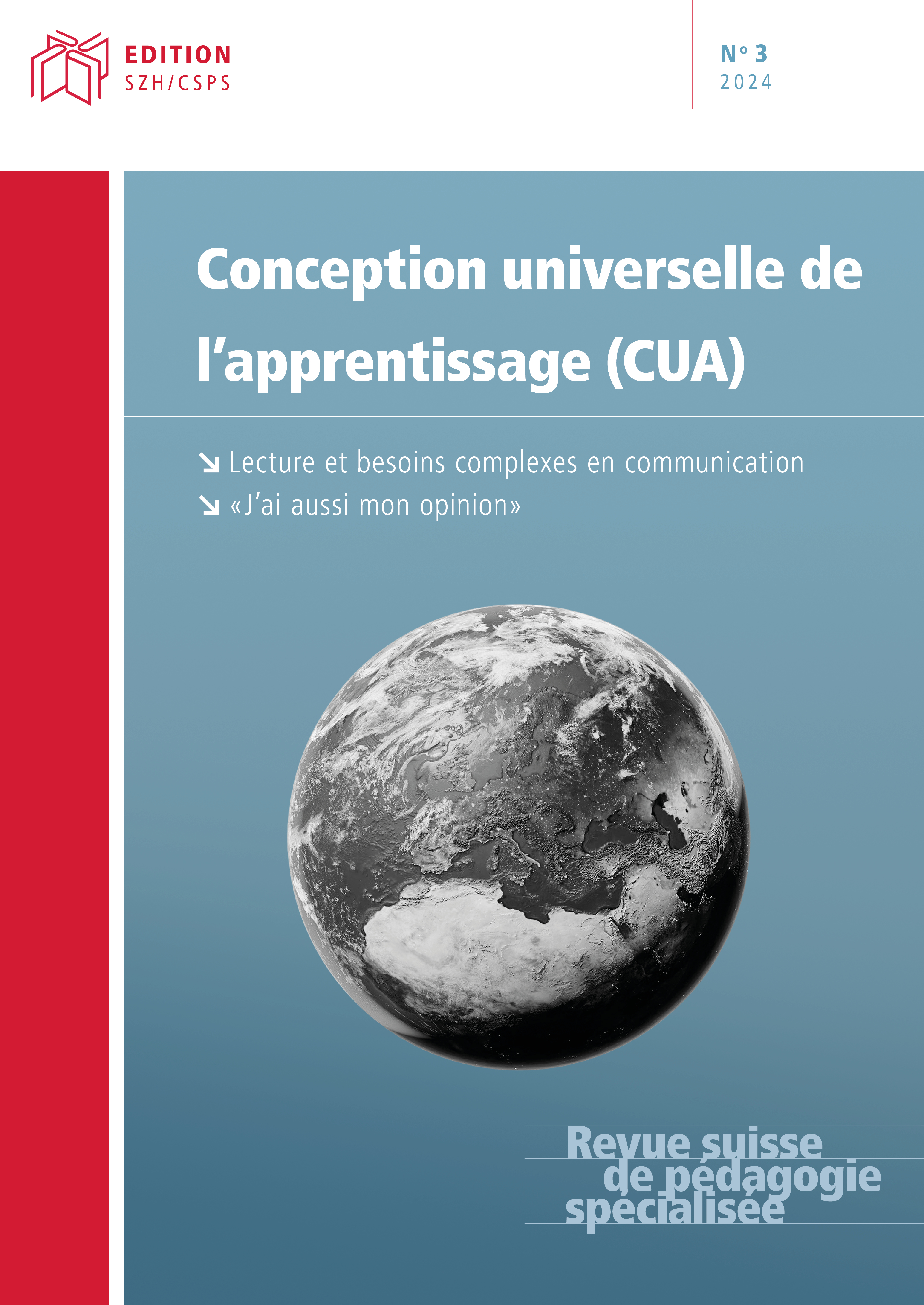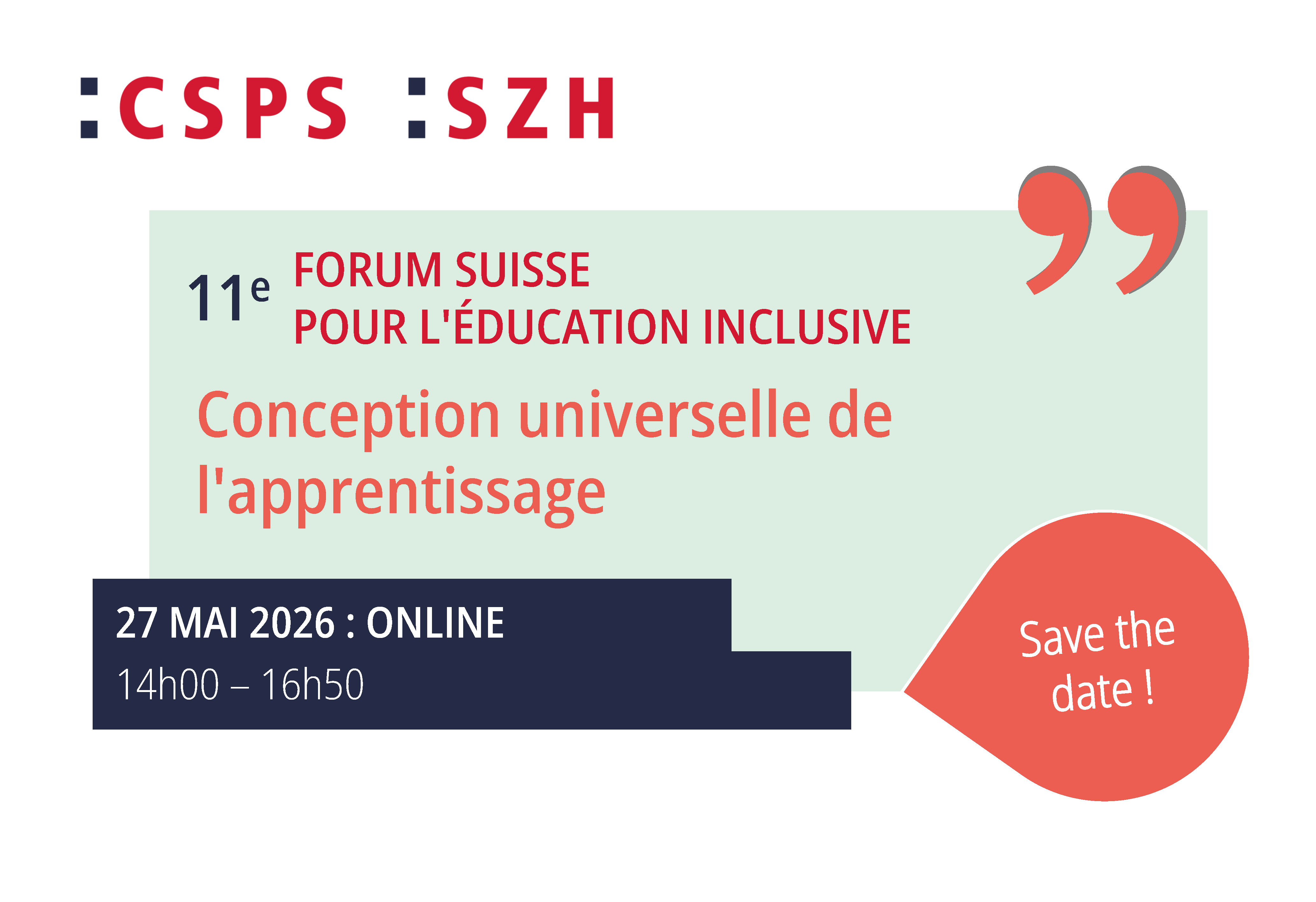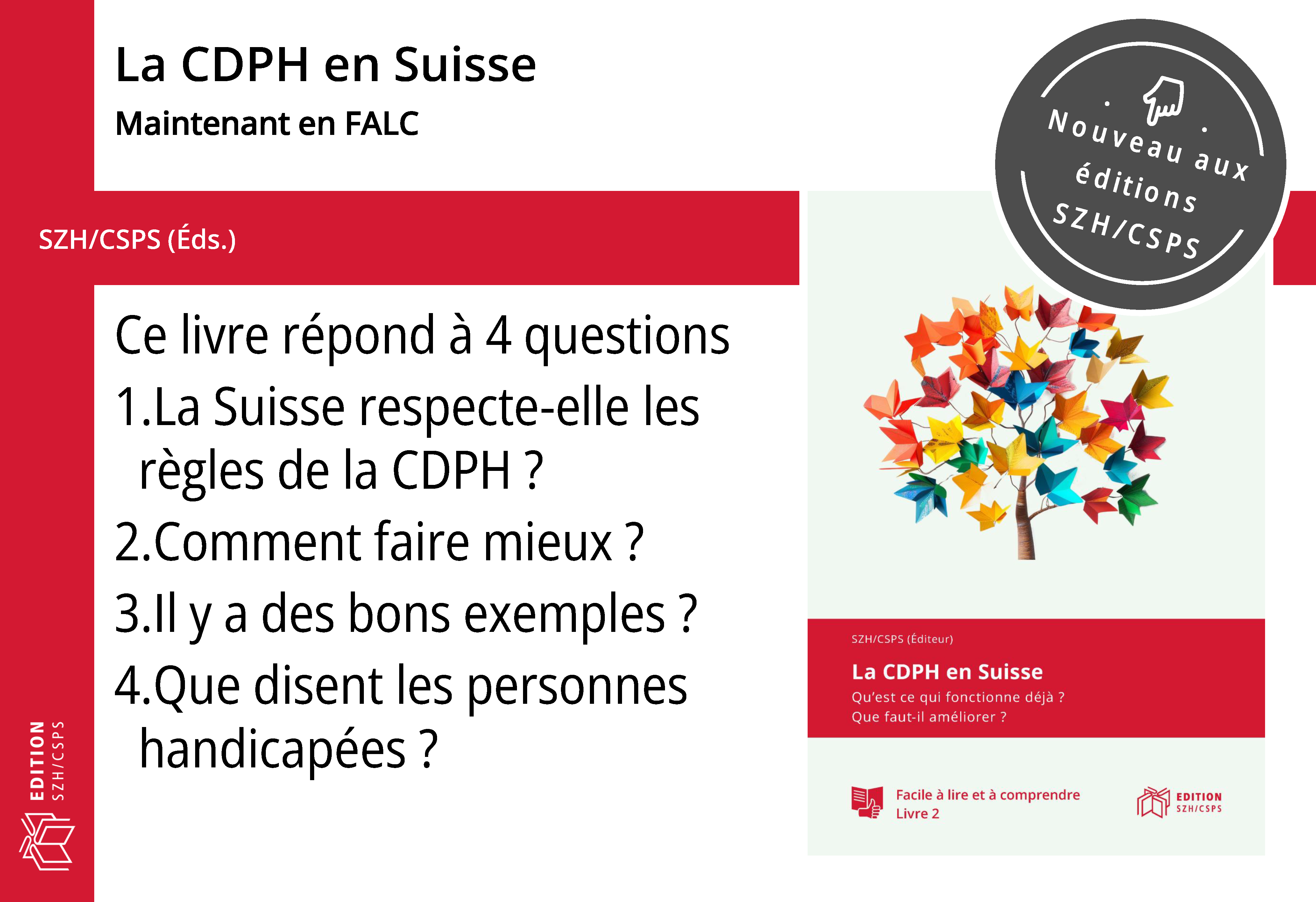Apprendre à lire avec une déficience intellectuelle et des besoins complexes en communication
Stratégies d’enseignement et ressources pédagogiques
DOI :
https://doi.org/10.57161/r2024-03-06Mots-clés :
communication alternative et améliorée (AAC), déficience intellectuelle, enseignement spécialisé, LectureRésumé
Cet article présente les adaptations à apporter à un enseignement phonique de la lecture pour que les élèves avec une déficience intellectuelle et des besoins complexes en communication puissent acquérir des compétences en lecture. Il synthétise les connaissances actuelles issues de la recherche et illustre leur mise en pratique concrète à l’aide de ressources développées dans le cadre du projet ELODI-II financé par le Fonds national suisse (FNS).
Références
Ahlgrim-Delzell, L., Browder, D. M., & Wood, L. (2014). Effects of Systematic Instruction and an Augmentative Communication Device on Phonics Skills Acquisition for Students with Moderate Intellectual Disability Who Are Nonverbal. Education and Training in Autism and Developmental Disabilities, 49(4), 517-532. http://www.jstor.org/stable/24582348
Ahlgrim-Delzell, L., Browder, D.M., Wood, L., Stanger, C. Preston, A.I., & Kemp-Inman A. (2016). Systematic instruction of phonics skills using an iPad for students with developmental disabilities who are AAC Users. The Journal of Special Education, 50(2). 86-97, https://doi.org/10.1177/0022466915622140
Bakken, R. K., Næss, K. A. B., Lemons, C. J., & Hjetland, H. N. (2021). A systematic review and meta-analysis of reading and writing interventions for students with disorders of intellectual development. Education Sciences, 11(10), Article 638. https://doi.org/10.3390/educsci11100638
Barker, M. R., Saunders, K. J., & Brady, N. C. (2012). Reading instruction for children who use AAC: Considerations in the pursuit of generalizable results. Augmentative and Alternative Communication, 28(3), 160-170. https://doi.org/10.3109/07434618.2012.704523
Beukelman, D., R., & Light, J. C. (2020). Augmentative and alternative communication: supporting children and adults with complex communication needs. Brookes Publishing.
Browder, D., Ahlgrim-Delzell, L., & Wood, L. (2015). Early Reading Skills Builder (ERSB). Attainment company.
Coleman-Martin, M. B., Heller, K. W., Cihak, D. F., & Irvine, K. L. (2005). Using Computer-Assisted Instruction and the Nonverbal Reading Approach to Teach Word Identification. Focus on Autism and Other Developmental Disabilities, 20(2), 80–90. https://doi.org/10.1177/10883576050200020401
de Chambrier, A.-F. (2022). Décodi. Méthode pour enseigner la lecture aux élèves avec déficience intellectuelle - Niveau 2. Éditions Retz.
de Chambrier, A.-F., Sermier Dessemontet, R., & Martinet, C. (2021). Décodi. Méthode pour enseigner la lecture aux élèves avec déficience intellectuelle - Niveau1. Éditions Retz
Erickson, K. A., & Geist, L. A. (2016). The profiles of students with significant cognitive disabilities and complex communication needs. Augmentative and Alternative Communication, 32(3), 187-197. https://doi.org/10.1080/07434618.2016.1213312
Geyer, M., Linder, A.-L., de Chambrier, A.-F., Meuli, N., Martinet, C., Arm, M, Coutaz, A. & Sermier Dessemontet, R (2024). Teaching Letter-Sound Correspondences and Phonemic Awareness to Students with moderate Intellectual Disability and Autism Spectrum Disorder who are Augmentative and Alternative Communication users [Manuscript submitted for publication]. UER Pédagogie Spécialisée, HEP-Vaud.
Haute École Pédagogique du canton de Vaud [HEP Vaud]. (2022). DécoDI© (Version 1.1) [Mobile app]. https://apps.apple.com/ch/app/d%C3%A9codi/id1553457921
Heller, K. W., Fredrick, L. D., Tumlin, J., & Brineman, D. G. (2002). Teaching Decoding for Generalization Using the Nonverbal Reading Approach. Journal of Developmental and Physical Disabilities, 14, 19-35. https://doi.org/10.1023/A:1013559612238
Langarika-Rocafort, A., Mondragon, N. I., & Etxebarrieta, G. R. (2021). A systematic review of research on augmentative and alternative communication interventions for children aged 6-10 in the last decade. Language, Speech, and Hearing Services in Schools, 52(3), 899-916. https://doi.org/10.1044/2021_LSHSS-20-00005
Linder, A.-L., Geyer, M., Atzemian, M., Meuli, N., Martinet, C., de Chambrier, A.-F., & Sermier Dessemontet, R. (2023). Effects of adaptations of a phonics-based reading intervention program on reading and spelling skills of students with intellectual disability who require augmentative and alternative communication. Frontiers in Education, 8, 1-13. https://doi.org/10.3389/feduc.2023.1190838
Linder, A-L., Sermier Dessemontet, R., Meuli N., Martinet, C. & de Chambrier, A.-F. (2023). Adaptations de la méthode Décodi pour les élèves avec des besoins complexes en communication. http://www.hepl.ch/ELODI-II-adaptations
Meuli, N. (2024). Les compétences en lecture des élèves ayant une déficience intellectuelle et des besoins complexes de communication [Thèse de doctorat]. Université de Fribourg.
Meuli, N., de Chambrier, A.-F., Martinet, C., & Sermier Dessemont, R., (2023). Outil d’évaluation non verbale. http://www.hepl.ch/ELODI-II-evaluation
Sermier Dessemontet, R., de Chambrier, A.-F., Martinet, C., Meuli, N., & Linder, A.- L. (2021). Effects of a phonics-based intervention on the reading skills of students with intellectual disability. Research in Developmental Disabilities, 111, Article 103883. https://doi.org/10.1016/j.ridd.2021.103883
Sermier Dessemontet, R., Martinet, C., de Chambrier, A.-F., Martini-Willemin, B.-M., & Audrin, C. (2019). A meta-analysis on the effectiveness of phonics instruction for teaching decoding skills to students with intellectual disability. Educational Research Review, 26, 52-70. https://doi.org/10.1016/j.edurev.2019.01.001
Yorke, A. M., Caron, J. G., Pukys, N., Sternad, E., Grecol, C., & Shermak, C. (2021). Foundational Reading Interventions Adapted for Individuals Who Require Augmentative and Alternative Communication (AAC): A Systematic Review of the Research. Journal of Developmental and Physical Disabilities, 33, 537-582. https://doi.org/10.1007/s10882-020-09767-5
Publiée
Comment citer
Numéro
Rubrique
Licence
© Rachel Sermier Dessemontet, Anne-Françoise De Chambrier, Catherine Martinet 2024

Ce travail est disponible sous la licence Creative Commons Attribution 4.0 International .




